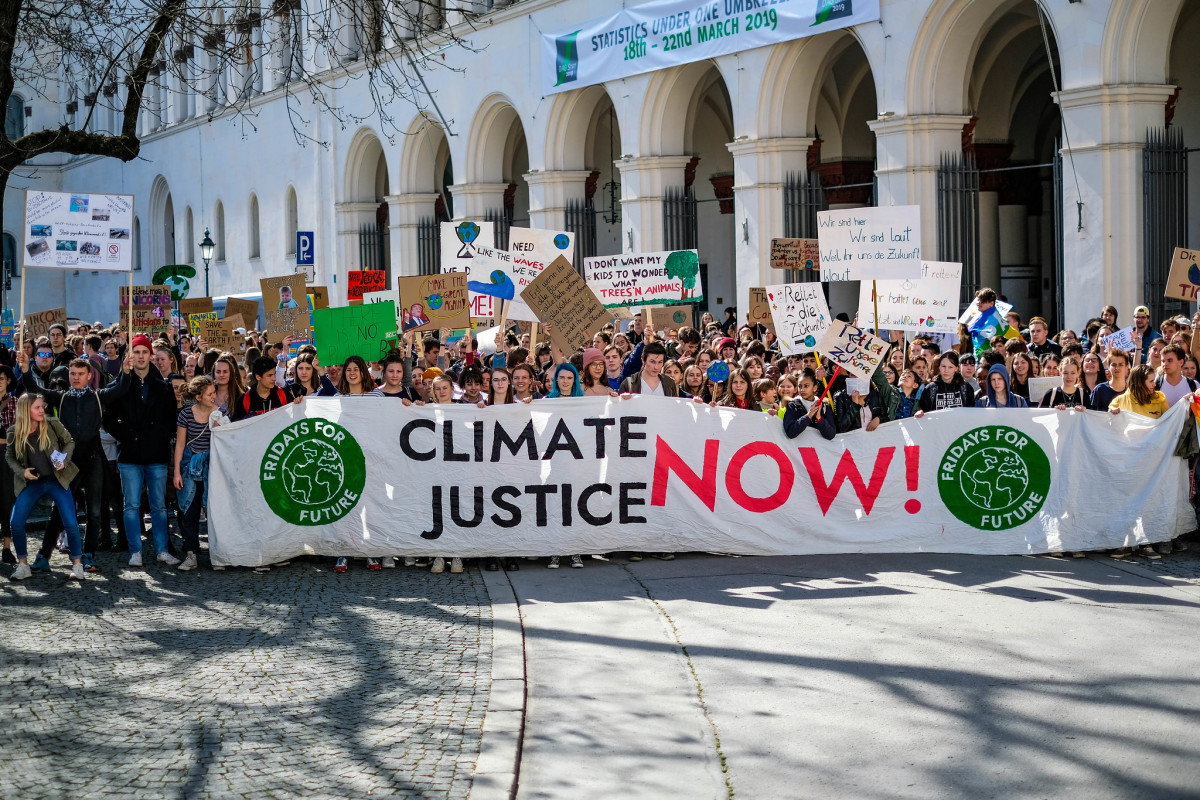Preview 2021 – ‘We have to radicalise all parties to adopt more ambitious climate plans’
Clean Energy Wire: What are the most pressing energy and climate issues that have to be tackled in 2021?
Carla Reemtsma: There are two very important issues. First, we need more ambitious climate goals. The UN emissions gap report of 2020 shows that even if every nation sticks to the climate targets they have set, we are heading for a world that is 3.2 degrees Celsius hotter, which will lead to catastrophes we cannot even image. Germany currently has a climate goal of 55 percent emissions reduction by 2030. This is not enough. We need to be climate-neutral by 2035, so we need roughly 80 or 85 percent reduction by 2030.
We must adjust our climate goals, but even more importantly, in order to reach those goals, we need measures that will drastically reduce emissions now – and not in 2030. One of those measures has to do with the coal phase-out. In countries in the EU where coal is still a big part of the energy system, we need to quit using gas as a substitute fuel for coal and use renewable energy instead. Gas is not an option because, just like coal, it is a fossil fuel. Then there is the EU Common Agricultural Policy (CAP) that heavily subsidises intensive agriculture, which threatens to intensify global warming and endangers biodiversity. This needs to be changed as well.
What impact did the coronavirus pandemic have on the climate movement's demands for more climate action?
The pandemic has obviously changed everything about the way we work. We usually bring masses of people to the streets, and that is something that one shouldn’t do today. Instead, we have started different kinds of actions, such as online strikes, placing cardboard signs in front of parliaments and town halls, and we also organised a global climate strike in September, where we ensured that the corona measures, such as maintaining social distance and wearing masks, were followed. We showed that we could protest in a responsible way. In terms of our focus, the corona recovery packages have been a big topic for the climate movement. Usually we are not very invested in those specific political decisions, but because so much money is being spent, we had a very close look at where politicians proposed to spend it – whether on fossil fuels, combustion engine cars or building car infrastructure. Those things will not be needed in the future. If you spend so much money, you must make sure that our children in twenty or thirty years would agree on how it was spent.
The Greens have profited a lot from the climate movement. But they didn’t move closer to the movement for example by adjusting their climate policies.
How will FfF position itself during the upcoming election campaign?
That is still a very big question for us as well. There are two main factors that are important for the climate movement when it comes to the election. The first thing is strengthening parties and people who are in favour of strong climate action. In Germany – unlike in the US, for example, where there is a two-party system – we face a situation where there will likely be a coalition of five or six parties in parliament. At the moment, none of the parties have a 1.5 degree Celsius plan for Germany. The measures proposed are just not enough. Most parties plan for the country to be climate-neutral by 2050, which is much too late. Therefore, we aim for two things: strengthening progressive parties that are in favour of strong climate action and radicalising all parties to adopt more ambitious climate plans. Of course, we also want to get more people involved in the climate movement, so we can put more pressure on the parties. We need as many people as possible to keep the pressure high. Not just during the election, but also afterwards.
Are the Greens still the 'natural partners' of the climate movement or do you think the relationship has cooled down in recent months?
I think the Green Party has never been the natural partner of the climate movement. In the past months and years, the Greens have profited a lot from the climate movement, since this party is the most credible when it comes to questions of climate. More and more people who vote care about the climate, so the Green Party has received a bigger share of the vote. But they didn’t move closer to the climate movement for example by adjusting their climate policies - which are obviously not enough.
In the German states or cities where the Greens are already in government, they often face the challenge of being in a coalition, especially with conservative parties. They then drop all values they have for fighting the climate crisis, just so they can get in a governing coalition. I think a good example is the conflict surrounding the building of a motorway in the Dannenröder forest, which made many young people who had high hopes for the Greens feel disappointed in the Green Party. They saw that the Greens talked a lot about how they could not do anything [to prevent the building of the motorway], which was just not true. I would say there is a massive conflict between parts of the climate movement – not all, since there are also members of the movement who are working for the Greens – and the Green Party.



